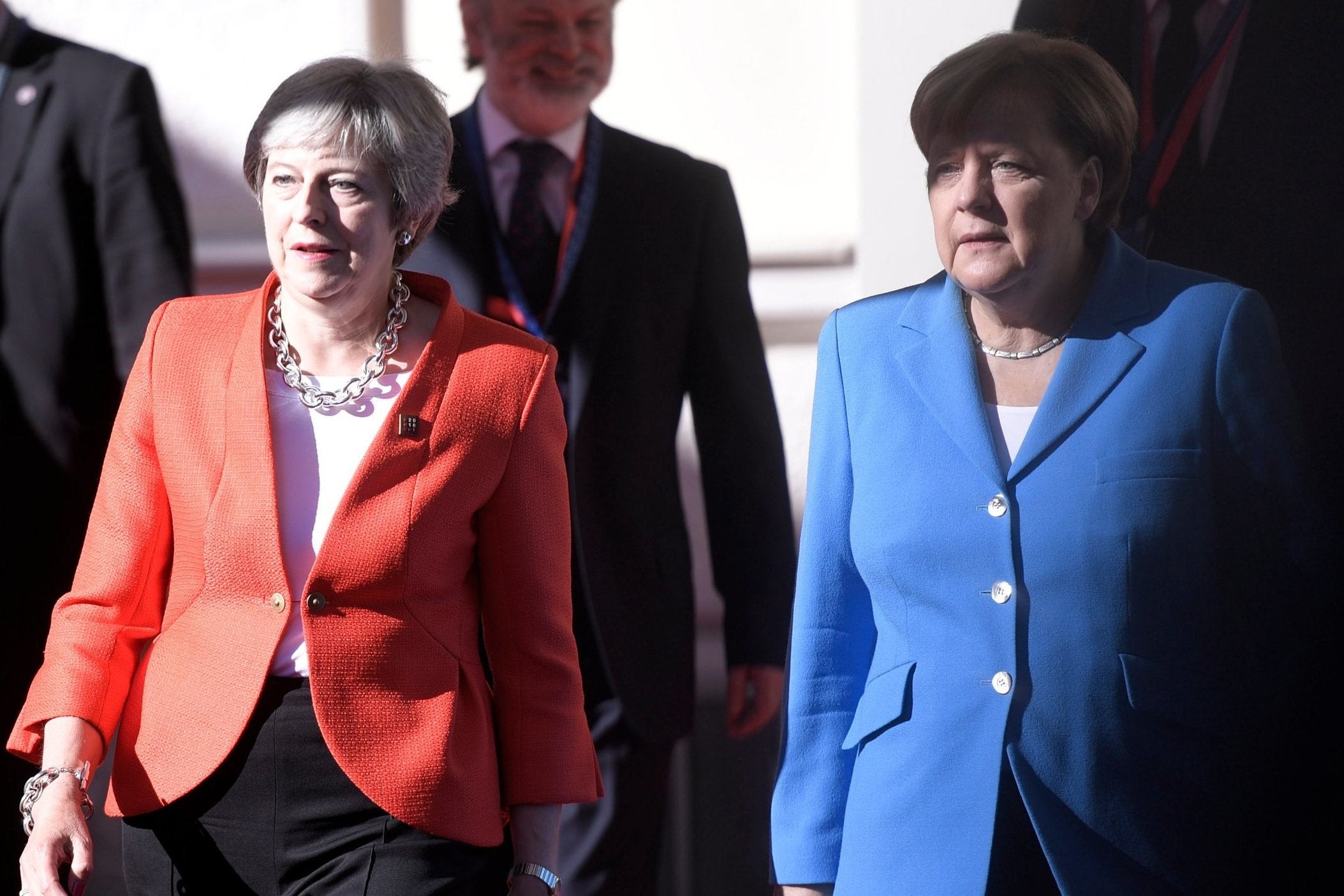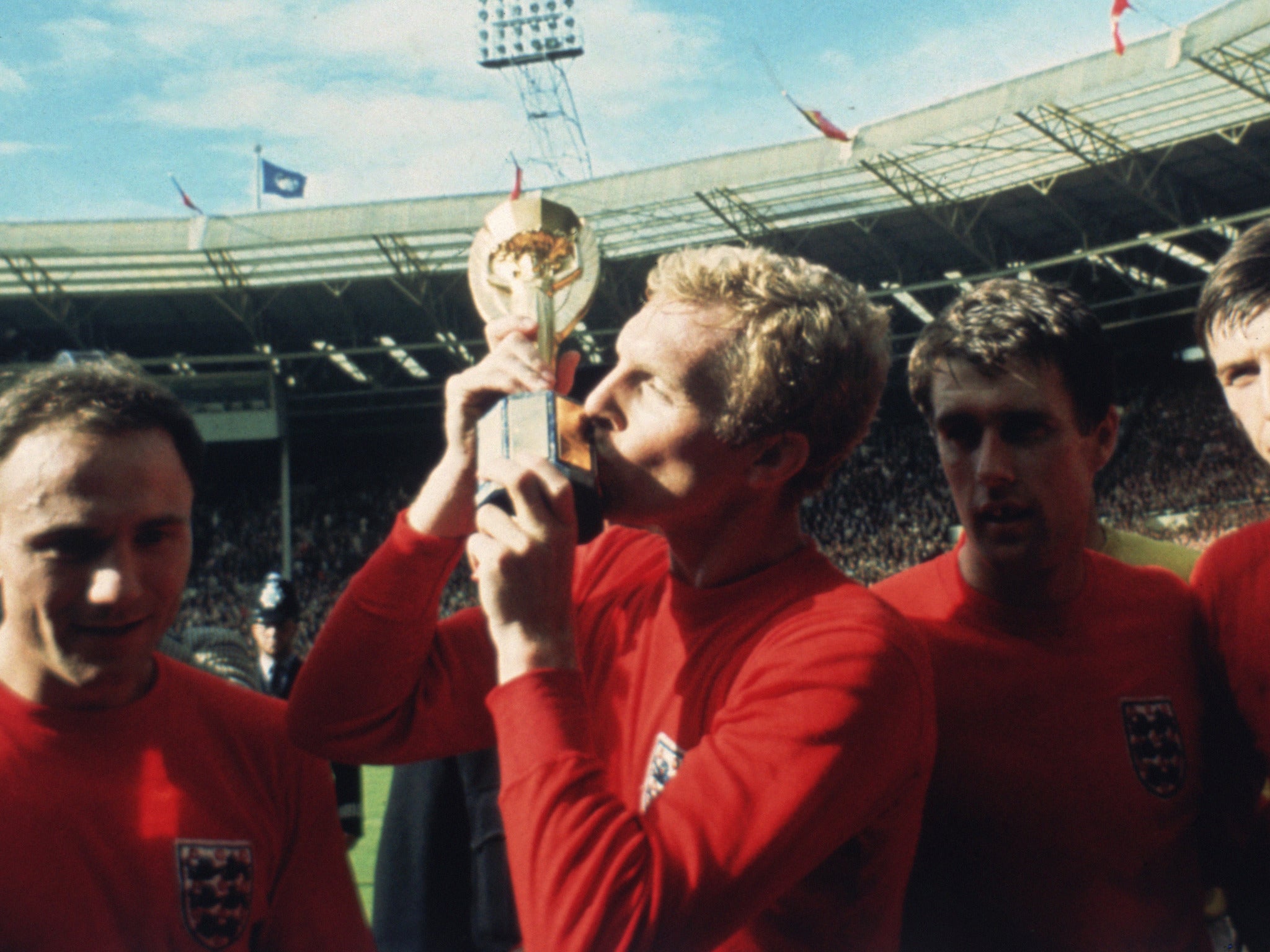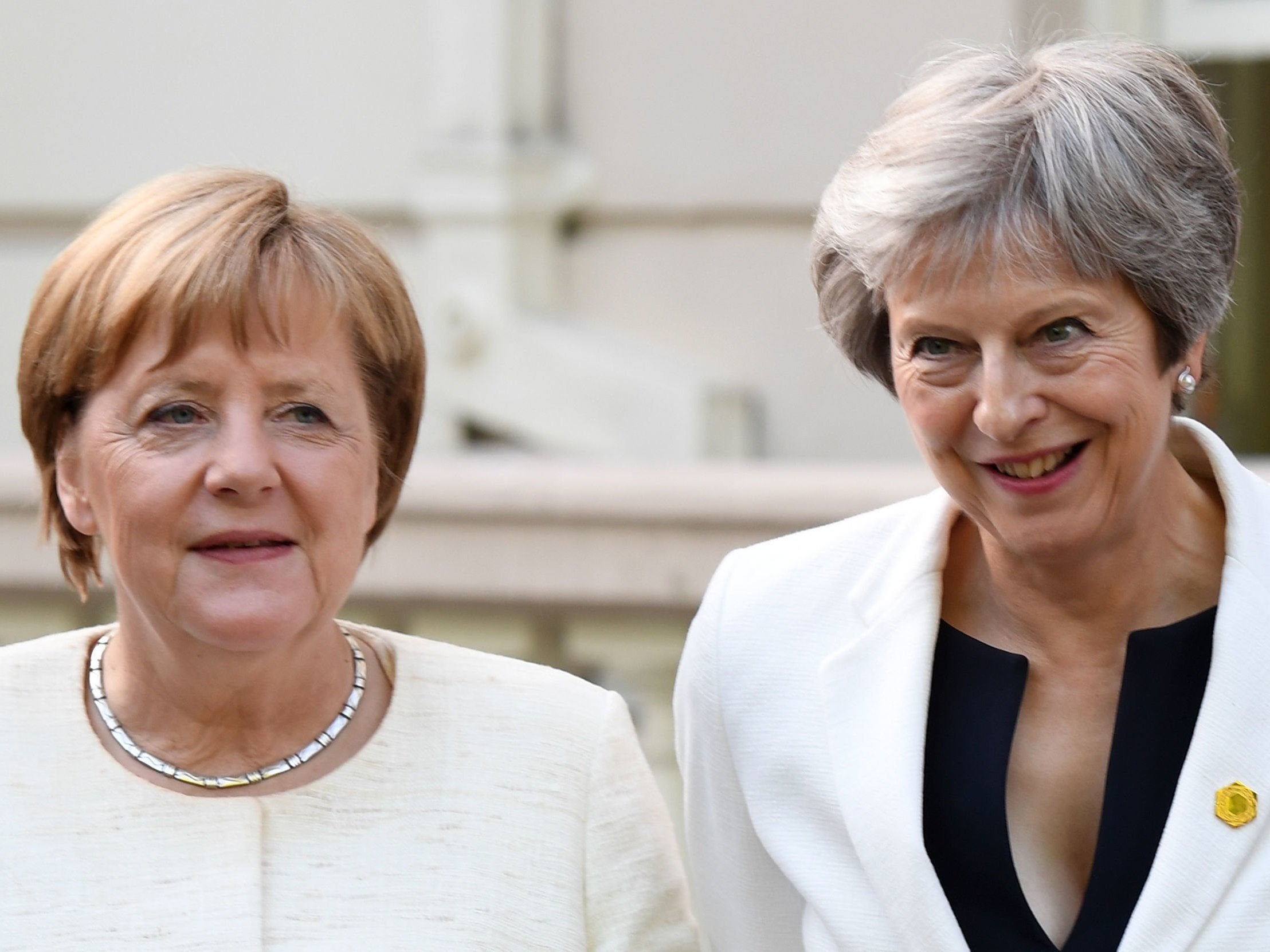The Anglo-German relationship holds the key to Brexit, but do we really understand each other at all?
While Brussels might be the de facto capital of the EU, Berlin and London are its economic powerhouses. But what do Europe’s biggest frenemies really know about each other? William Cook, who finally got his German passport this year, unravels the myths of the Anglo-German relationship


Last month Theresa May went to Salzburg to try to sell her Chequers plan to European bigwigs at the EU summit – and the leader she was most keen to persuade is the German chancellor, Angela Merkel. For our beleaguered prime minister, it was the moment of truth. Would Merkel tell Michel Barnier to stop being so beastly and give us a “have your cake and eat it” deal? Or would she tell May to get lost, and reveal Chequers to be a busted flush?
Ever since Britain voted to leave the EU, it’s been the same old story here in Blighty. Surely the Germans will come to our rescue? Surely they’ve got too much to lose? Don’t count on it. I’ve been reporting from Germany fairly regularly for nearly 30 years, and the one thing I’ve learnt is that Germans feel compelled to do things by the book. “Alles in ordnung” (everything in order) is their mantra when it comes to Europe – and virtually everything else, for that matter, at least if you believe the stereotype. For them, in means in and out means out – no ifs or buts. As one German civil servant told me bluntly: “It’s black and white.”
When Britain voted for Brexit in 2016, I was an archetypal Remoaner: a Londoner, a liberal, a member of the so-called “mainstream media”. However, since then I’ve changed my mind. Don’t get me wrong – I still think full membership of the EU, for all its faults, is by far the best way forward for any European nation. But I’ve also come to realise that, sadly, the EU is better off without us. The EU has some huge problems it needs to tackle – not least immigration – and it’ll tackle these problems a lot better without tens of millions of British Europhobes sniping from the sidelines, willing them to fail.

I guess the reason for this change of heart is that my loyalties have shifted. Earlier this year I achieved a lifelong ambition when I finally received my German passport (my father was born in Germany and came to Britain when he was a child). Despite my enduring affection for Britain, the land where I was born and raised, I realised that I cared more about the EU than I do about the UK. Does this make me a traitor, a turncoat, a cuckoo in the nest? In a way, I suppose it does. But look at it this way: in geopolitical terms, which is actually more important – the short-term prospects of the United Kingdom, or the long-term future of the European Union as a whole?
Myth one
In football, England vs Germany is the big international grudge match
This fixture may be massive for us, but it’s not such a big deal for the Germans. For most football fans in Germany, Holland is the local derby. This is partly a matter of proximity: the biggest concentration of German football clubs is in the Ruhr, only a few hours drive from the Netherlands; lots of Germans work in Holland and vice versa, and lots of Dutch players play in the German league. Dutch football fans are still aggrieved that their fantastic ‘total football’ team of the 1970s was beaten by a more prosaic German team in the 1974 World Cup final. On a more serious note, memories of German’s brutal occupation of Holland during WWII still smart.
For the Germans, England’s World Cup final victory over West Germany in 1966 is ancient history. After all, they’ve contested six World Cup finals and won three World Cups since then. What’s more, Germans have always had a soft spot for English football, regarding a trip to Anfield or Old Trafford as a pilgrimage, a chance to pay homage to the land where their national sport was born.
Getting a German passport wasn’t an overnight decision. I’d been meaning to apply for one for years, but before Brexit there didn’t seem much point. Yet although my initial motivation was purely practical, it soon became something far more emotional. With a German father and an English mother, I’ve always had divided loyalties. From playground wargames to “Hun”-bashing tabloid headlines, I’ve always been able to see both sides.
Last time I wrote about my German heritage, a reader asked what national football team I supported. It’s a good question, and the answer reveals a good deal about the way my feelings about Britain and Germany have changed. Ever since I was a child, I’d always supported England. I only ended up supporting Germany in Euro 96, when I was already thirty. This wasn’t a conscious decision – football affiliations never are. I simply went along to Wembley to watch England play Germany, and when it went to penalties I discovered, to my immense surprise, that I wanted Germany to win. I reckon Norman Tebbit was on to something with his so-called “cricket test”. Like him, I think it’s telling which team you’re cheering on.
I can’t say quite what swayed me, but the media coverage had a lot to do with it. Not just the coverage of that tournament, or even the general coverage of German football, but the British coverage of Germany as a whole. I’d always felt ashamed of being half-German. I’d always believed the Britons were the good guys. For the past that still held, of course, but what about the present? When I was a kid, it seemed so clear cut – the Germans were the baddies, and always would be. Now I wasn’t so sure anymore.

Before reunification, it was hard to warm to Germany – even for a closet kraut like me. The Wirtschaftswunder (economic miracle) of the 1950s and 1960s had created a stridently capitalist Bundesrepublik, anxious to forget its awful past, and embrace a Teutonic version of the American Dream. On my first few fleeting visits, West Germany felt brash and somewhat soulless. Yet then the Berlin Wall came tumbling down, and everything changed.
Myth two
Germans are ruthlessly efficient, at everything
Even on the football field, this stereotype is simplistic twaddle, as Germany’s farcical exit from this year’s World Cup should have proved once and for all. Far from grinding out 1-0 wins, the Nationalmannschaft is actually extremely volatile, beating Brazil 7-1 in the 2014 World Cup semi-final, and drawing 4-4 with Sweden in the qualifiers for that tournament after going 4-0 up.
In Germany at large, there’s even less evidence for this ‘ruthless efficiency’ stereotype. Unlike Switzerland, where everything really is spick and span, and the trains really do run like clockwork, the larger German cities are often scruffy and chaotic – festooned with graffiti and strewn with roadworks. Indeed, that’s part of their anarchic charm. Out in the countryside, the pace of life is ponderous. Before Bismarck unified the country in 1871, under Prussia, Germany was widely regarded as a land of dreamers and philosophers and there’s still a large element of that today.
It seems almost comical to recall today that the reunification of Germany prompted countless scare stories about the rise of the Fourth Reich. In fact, the opposite happened. The herculean task of rebuilding East Germany put the brakes on the West German economy, and as the two Germanies came together, Deutschland discovered a new voice. When I first went to Berlin in 1991, and on into the former DDR, I discovered a gentler Germany – determined to confront its horrific history, and build a more benevolent, inclusive state.
Of course, it wasn’t paradise, but on the whole these new Germans seemed to be facing the future with grace and dignity. Britain, on the other hand, seemed to be living on past glories – not only on the football field, but in their dealings with the EU. Germany now embodied many of the attributes I used to associate with Britain: patience, politeness, moderation. The British, on the other hand, seemed increasingly hysterical and shrill. Like a spoilt only child at someone else’s birthday party, we seemed to have a terribly inflated sense of self-importance. We deserved a special deal with Europe. We deserved to triumph on the football field. It’s been like that for decades. Brexit didn’t happen overnight.

Over the past 30 years, I’ve been to Germany more times than I can count. I’ve reported from Germany numerous times for this newspaper, and for lots of other papers too. And to me, the idea that Merkel will lean on Barnier to give Britain a bespoke deal has always seemed like wishful thinking. Sure, German carmakers will take a big hit if we crash out without a deal, but they took a big hit when Merkel imposed sanctions after Russia invaded Crimea. German carmakers protested, but Merkel didn’t budge.
The British notion that, when push comes to shove, Germany will protect its economic interests betrays a basic misunderstanding of how the Germans see the EU. Britain’s interest in the EU has always been economic, not political. In Germany, it’s always been the other way around. Like so many aspects of Anglo-German relations, this is all about the war. After the Second World War, when Britain stood alone against the Nazis, Britons would always be reluctant to pool their national sovereignty. For repentant Germans, on the other hand, after the genocidal crimes of the Third Reich, sharing sovereignty with the countries it had terrorised was the only way ahead.
As Europe’s most populous country, Germany packs a big punch, but its political clout is limited by its EU membership. Still haunted by the ghost of Hitler, that’s just the way most Germans like it. When I’ve spoken to German diplomats about these exit talks, they’ve been frank about where the real power lies. “It’s a matter for the European Commission,” they say.
Germany sells a lot to Britain – about 6.6 per cent of total exports, but it exports significantly more to France (over 8 per cent) and more than 10 per cent to the Benelux. Germany has land borders with eight EU countries. Almost a third of its exports go to these countries. Any deal which undermined the single market would leave German exporters hugely out of pocket. Any gains from the British market would jeopardise bigger markets closer to home.
Myth three
Germans have no sense of humour
Well, this one is harder to refute, because humour, like beauty, is all in the eye of the beholder. If you think Germans are humourless, it doesn’t really matter what I say. However when Brits say Germans are humourless, they usually mean when Germans are speaking English. And how funny are the rest of us when we’re speaking another language?
Since humour is the first casualty of translation, if you don’t speak (very) good German, you’re probably not getting a proper picture. If you do, you may be surprised to learn that there’s a lot of it about. German cinema is booming, and many of the best German films are comedies. Try Goodbye Lenin, a wry, witty movie about German reunification, or Schtonk, an absurd farce about the Hitler Diaries scandal.
This profusion of land borders has a profound effect on how Germans view Britain. Munich is a short drive from Austria. Berlin is a short drive from Poland. Dresden is a short drive from Prague. Compared to these near neighbours, Britain seems a long way away. The German view of Britain is affectionate, but it’s not intimate. Germany has always had far closer cultural ties with Austria, the Czech Republic, the Benelux and France.
So why do so many British politicians persist in thinking that the Germans will ride to Theresa May’s rescue? Partly because, as usual, we overestimate our own importance. And partly because we assume the Germans are just as cynical as we are when it comes to the EU. Britain joined the EU when the continent had begun to outstrip us economically. We decided to leave when it looked like the continent was beginning to lag behind. But unlike the British, the Germans aren’t just in it for the money. Their membership of the European Union is a matter of moral redemption. They believe it prevented a third world war, and will help prevent future wars as well.
And yet in Britain the myth persists that the EU is “a German racket designed to take over the whole of Europe” (as Nicholas Ridley put it, in his infamous Spectator interview in 1990). In fact, the opposite is the case. As Europe’s biggest economy, Germany is constrained rather than empowered by EU membership. The euro was forced on a reluctant Germany by a wary France, as the price for reunification.
Germans never wanted to give up their beloved deutschmark, which had become a potent symbol of their postwar regeneration. Tying Germany to a common currency has turned out to be a boost for its exporters, but this was the unintended consequence of a French plan to shackle a reunited Germany, rather than a “German racket”.
Germany won’t bend the rules for Britain’s sake – that much is certain. Our future relationship with Europe will mirror one of the established models: Norway or Canada or the World Trade Organisation. Which one we choose is largely up to us, but it’ll be off the peg, not made to measure.
So where does that leave Anglo-German relations in the years to come? Well, without “ever closer union” to contend with, I reckon our relationship may become a good deal warmer. Absence will make the heart grow fonder, on both sides of the divide. Germans have always had a soft spot for Britain. Maybe once we’ve “taken back control” Britain will return the compliment. After all, with our mutual fondness for beer and football and bad haircuts, we’re really not that different – whatever our jingoistic tabloids say.
Join our commenting forum
Join thought-provoking conversations, follow other Independent readers and see their replies
Comments